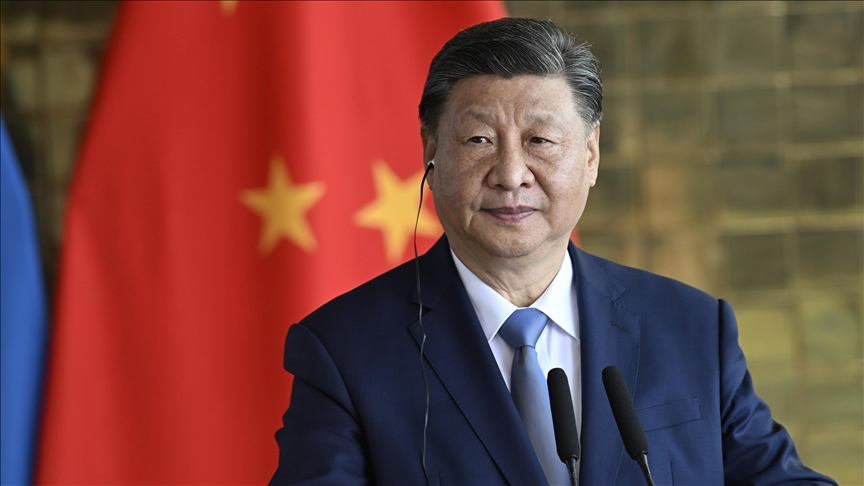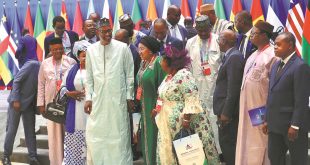Published: January 03,2024
By Staff writer

Chinese President Xi Jinping. Photo courtesy: Internet via aa.com.
In recent years, China’s diplomatic approach has been characterized by a steadfast commitment to multilateralism and the promotion of peaceful coexistence. As a rising global power, China has recognized the importance of working within a global framework to address the pressing issues of the 21st century, including climate change, trade, global security, and economic development. By emphasizing multilateralism and peaceful coexistence, China aims to foster international stability, strengthen its diplomatic relationships, and create a more balanced world order.
Multilateralism: A Pillar of China’s Foreign Policy
Multilateralism, the principle of engaging with multiple countries to resolve global challenges, has been a core feature of China’s diplomatic philosophy. In a world that is increasingly interconnected, China has consistently argued that no country, regardless of its power or size, can solve complex problems alone. Instead, collective action and international cooperation are essential.
One of the most notable examples of China’s commitment to multilateralism is its role in international institutions. As a permanent member of the United Nations Security Council, China has played a significant role in shaping global governance and upholding international peace and security. The country has also been a key participant in major global organizations such as the World Trade Organization (WTO), the G20, and the Shanghai Cooperation Organization (SCO).
China’s participation in the World Health Organization (WHO) during the COVID-19 pandemic also underscored its commitment to working with the international community to address global health challenges. The pandemic highlighted the necessity of a coordinated global response, and China was active in providing humanitarian aid to countries in need, contributing to vaccine development, and supporting international efforts to control the spread of the virus.Africa did not have COVID-19 vaccines, but western countries which had more than what they needed horded them and came in late. Thanks to the Chinese government intervention that provided the critically needed vaccines and consequently, millions of lives were saved.
Additionally, China’s Belt and Road Initiative (BRI) has been framed as a multilateral approach to global infrastructure development. By financing projects in Asia, Africa, and Latin America, China aims to foster economic growth and improve connectivity, emphasizing shared prosperity rather than competition. Although the initiative has faced criticism in some quarters, particularly over concerns about debt sustainability in developing countries, China has reiterated that the BRI is a platform for cooperation, rather than a tool for exerting dominance.
Peaceful Coexistence: China’s Vision for Global Harmony
At the heart of China’s foreign policy is the concept of peaceful coexistence, a principle rooted in the country’s ancient diplomatic traditions. This principle advocates for mutual respect, non-interference in the internal affairs of sovereign nations, and the peaceful resolution of disputes. China’s approach to peaceful coexistence is often contrasted with the more interventionist policies of some Western powers.
The idea of peaceful coexistence was most famously articulated in the “Five Principles of Peaceful Coexistence,” a set of guidelines established in 1954 during negotiations with India. These principles are: mutual respect for territorial integrity and sovereignty, mutual non-aggression, mutual non-interference in internal affairs, equality and mutual benefit, and peaceful coexistence. Over the years, these principles have been central to China’s diplomatic efforts and are frequently invoked in its foreign relations.
In practice, China’s diplomacy promotes peaceful coexistence through dialogue, negotiation, and confidence-building measures. For example, China has played a key role in mediating regional conflicts, such as in Myanmar and Afghanistan, advocating for peaceful solutions rather than military intervention. The country has also expressed its commitment to resolving territorial disputes through peaceful negotiations, including its longstanding disagreements with Japan and its claims in the South China Sea.
The idea of peaceful coexistence is also reflected in China’s growing emphasis on regional security frameworks. The Shanghai Cooperation Organization (SCO), which includes China, Russia, and several Central Asian countries, is one example of a regional multilateral organization focused on promoting security and stability in Eurasia. Through such platforms, China seeks to strengthen diplomatic ties and enhance mutual trust among neighboring countries, contributing to regional peace.
China’s Global Vision: Balancing Development and Stability
China’s vision of a peaceful world order is closely tied to its broader goals of economic development and global stability. The country’s rapid rise has been built on an open, market-oriented approach to trade, investment, and technology. However, China understands that economic growth must be accompanied by peace and stability in order to be sustainable.
China’s diplomatic efforts are therefore aimed at fostering an international environment that supports long-term development for all nations. In this context, China has worked to advocate for global economic reform, emphasizing the need for fairer and more inclusive global trade rules. By supporting the multilateral trading system, China seeks to ensure that economic globalization benefits all countries, especially developing nations.
In addition to its economic diplomacy, China is also an advocate for global environmental sustainability. China has committed to achieving carbon neutrality by 2060 and has invested heavily in renewable energy and green technologies. Through multilateral environmental agreements, such as the Paris Agreement on climate change, China plays an active role in addressing global environmental challenges and supporting the transition to a greener, more sustainable world.
China’s diplomatic approach is marked by its steadfast support for multilateralism and the promotion of peaceful coexistence. These principles reflect a vision of global governance that is cooperative, inclusive, and focused on mutual benefit. As China continues to grow in influence on the world stage, its commitment to multilateralism and peaceful coexistence will likely remain key pillars of its foreign policy, shaping its relationships with other countries and contributing to global stability and prosperity. Through these efforts, China seeks to create a harmonious and balanced international order, one in which all nations can thrive together.
 Africa -China Review Africa -China Cooperation and Transformation
Africa -China Review Africa -China Cooperation and Transformation
